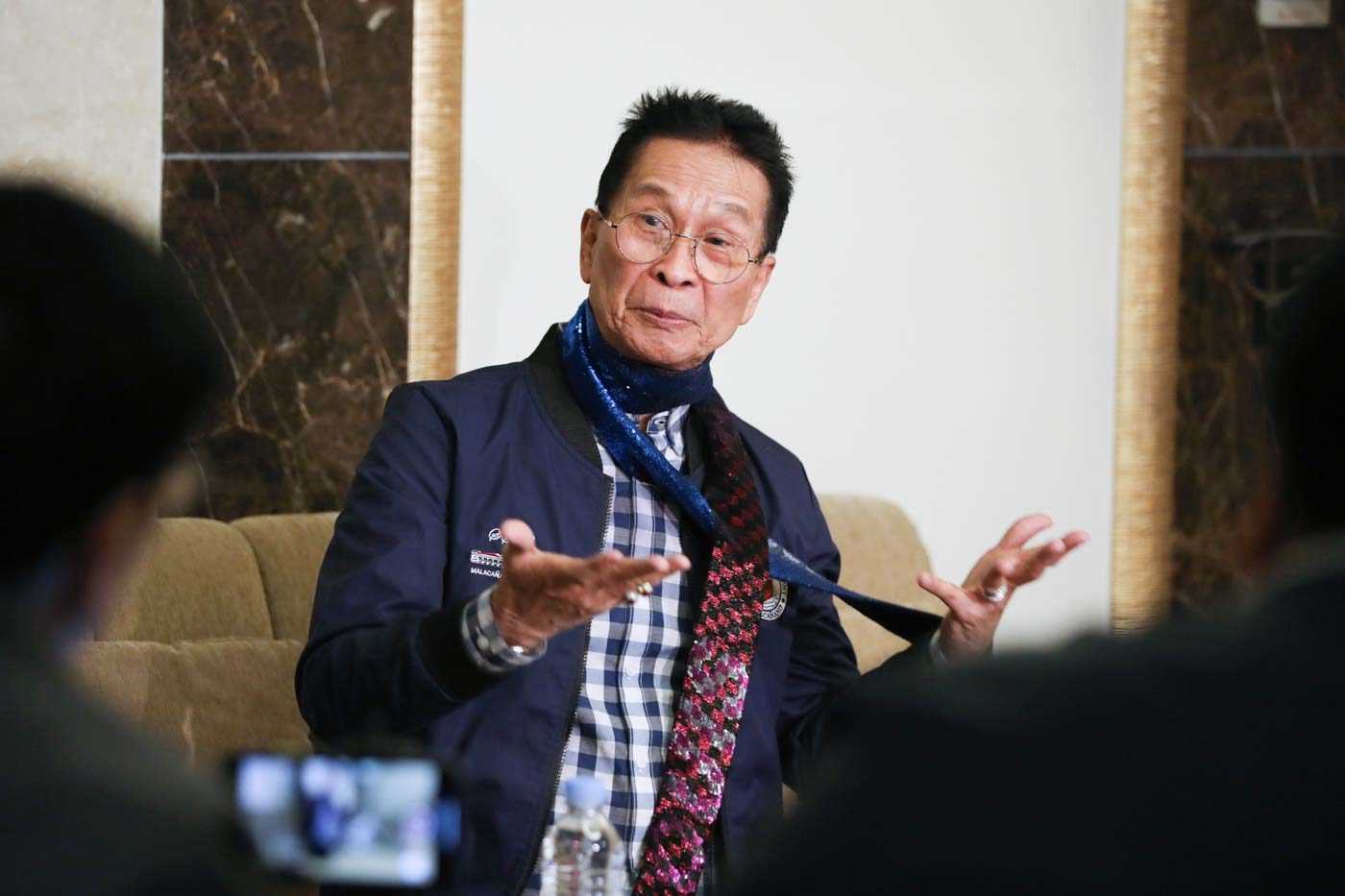SUMMARY
This is AI generated summarization, which may have errors. For context, always refer to the full article.

MANILA, Philippines – Malacañang lashed out at United States senators on Friday, January 10, decrying as a form of “bullying” the passage of a US Senate resolution seeking sanctions against Philippine officials involved in extrajudicial killings and the detention of Senator Leila de Lima.
In a statement on Friday, Presidential Spokesperson Salvador Panelo said the Duterte administration expressed its “disappointment” over the measure, but that it would respect the US Senate’s “misguided” action.
“These latest actions of the US Senate are a form of bullying on the part of a particular institution of a foreign country. We will not be bullied by any foreign country or by its officials, specially by misinformed and gullible politicians who grandstand at our expense,” Panelo said.
What US senators demand: After first moving to deny Philippine lawmakers entry to the US through a ban in the US State Deapartment’s 2020 budget, lawmakers in the US Senate sought further action by passing a resolution that seeks accountability among Philippine officials for human rights violations in the country.
Senate Resolution 142, which was “agreed” to or adopted by a unanimous vote in the US Senate on Thursday, January 9, invokes the Global Magnitsky Act – a law that gives the US executive branch the power to impose visa and travel restrictions, as well as financial sanctions, on human rights violators anywhere in the world.
In the case of the Philippines, sanctions were invoked against government officials and security forces responsible for extrajudicial killings, and government officials responsible for De Lima’s arrest and prolonged detention. (READ: Why the Global Magnitsky Act matters to the Philippines)
The resolution also called on President Donald Trump to ensure assistance provided by the US to the Philippine National Police is “fully consistent with the human rights conditions” in its Arms Export Control Act and Foreign Assistance Act of 1961.
Apart from this, US lawmakers urged the Duterte administration to “guarantee the right to the freedom of the press” and to drop all charges against Rappler and its chief executive officer Maria Ressa.
Panelo claims ‘bogus narratives’: Panelo argued against the resolution as he asserted it was based on “bogus narratives” from Duterte’s detractors. He reiterated the Duterte administration’s views that such moves on the part of the US Congress were viewed as “brazen and intrusive” to Philippine sovereignty.
Panelo also once again tried to assert De Lima’s detention was “lawful” and that killings under the Duterte administration’s landmark anti-illegal drug campaign were due to victims “fighting back” against police. But rights groups, such as Amnesty International, have found the killings to have reached the threshold for “crimes against humanity.”
“If and when these calls materialize, the Palace considers the same as a direct and shameless affront against the Republic of the Philippines, which has longed ceased to be a colony of the United States of America,” Panelo said.
He added he believed US officials in its executive branch tasked to implement these sanctions would be discerning and act based on “credible information and supporting evidence.”
Go deeper: US Senate Resolution 142, however, bases its information on the US State Department’s own Human Rights Report in 2017 and 2018, which cited the Philippines’ most significant human rights issues to include ‘‘unlawful or arbitrary killings by security forces, vigilantes, and others allegedly connected to the government, and by insurgents,” arbitrary detention, political prisoners, criminal libel, “killings of and threats against journalists,” and “official corruption and abuse of power,” among others.
The resolution also based its information on the facts surrounding De Lima’s case, and the findings of Amnesty International, Human Rights Watch, and the United Nations Human Rights Council’s (UNHRC) Working Group on Arbitrary Detention determining De Lima was a target of political persecution.
US senators, through the resolution, pointed out that, like the UNHRC’s Working Group on Arbitrary Detention, other governments – such as the European Parliament and Australian Parliament – have earlier called for De Lima’s release or a fair trail.
Imprisoned for over two years now, De Lima has been detained on drug charges, which she asserts were fabricated by the government. – Rappler.com
Add a comment
How does this make you feel?
There are no comments yet. Add your comment to start the conversation.